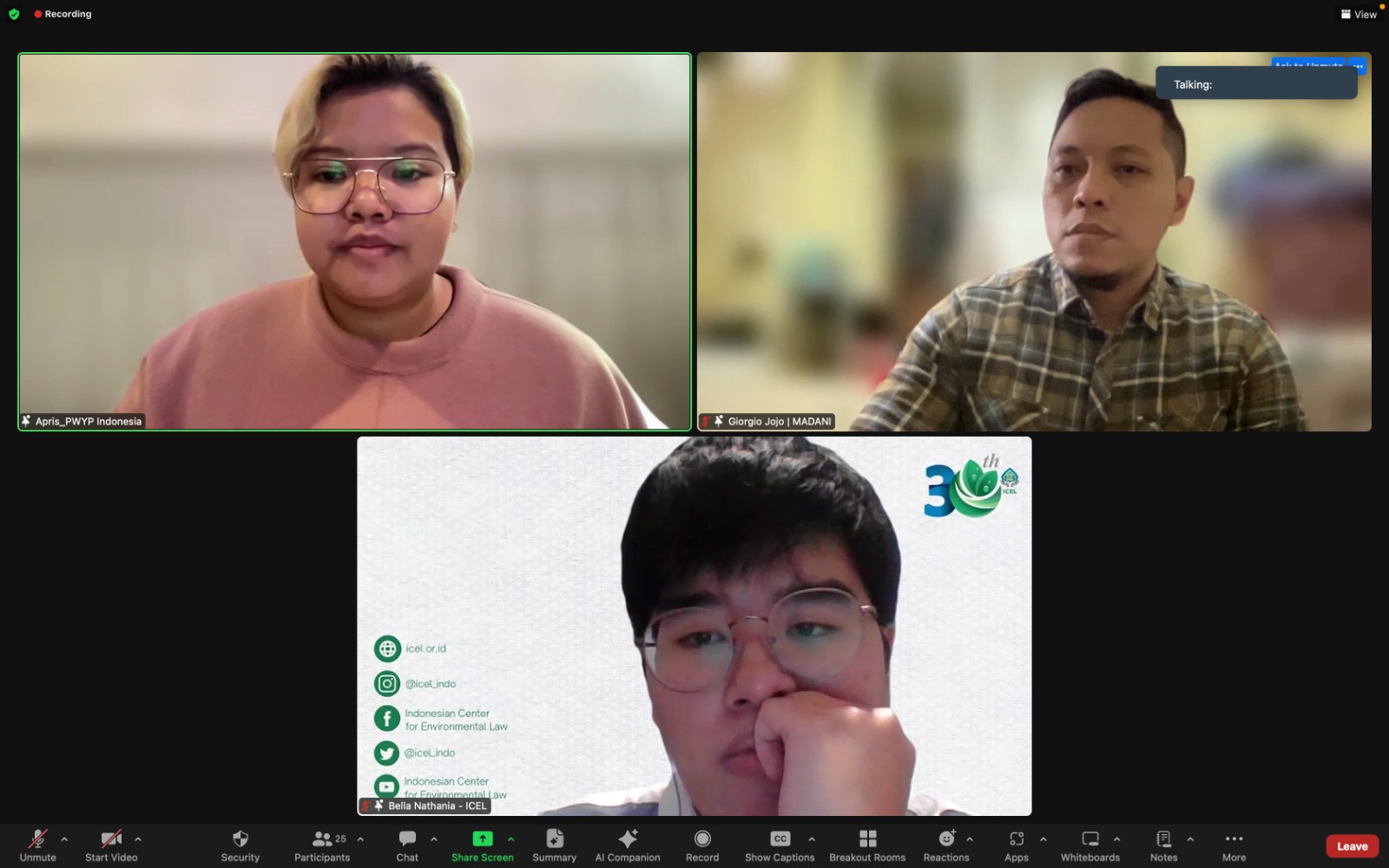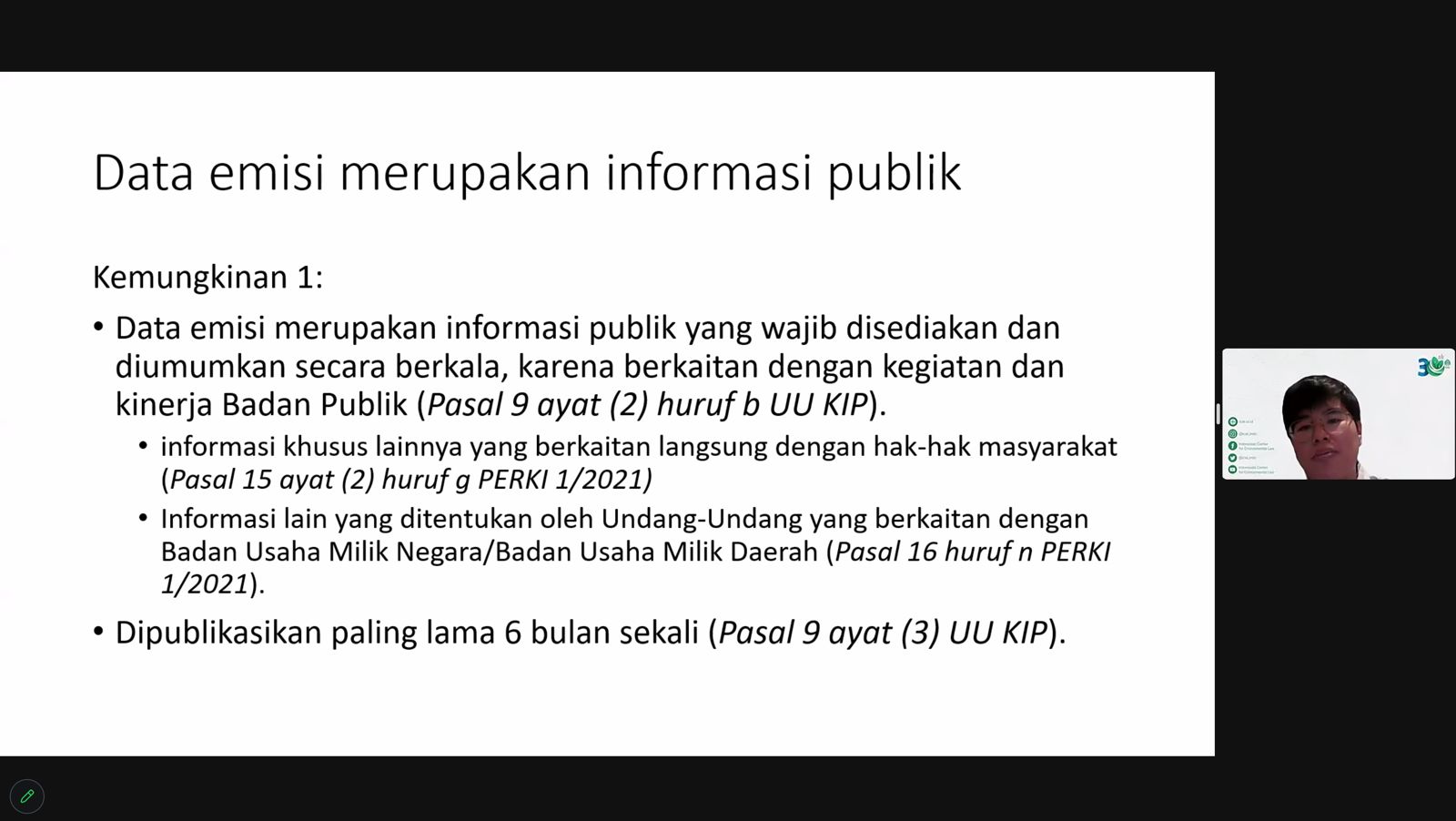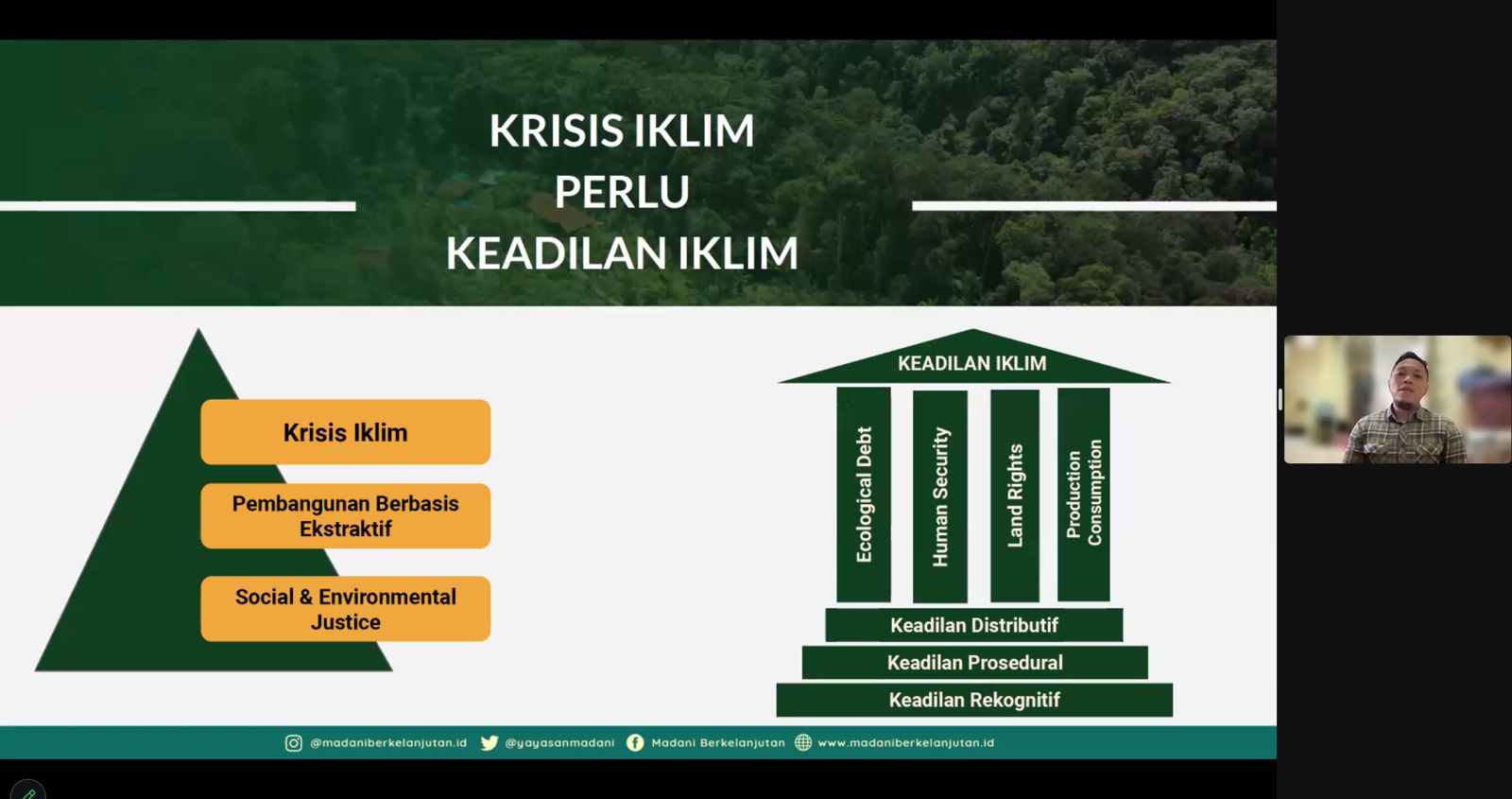Indonesia has set ambitious emission reduction targets. However, a recent information disclosure hearing revealed that PT PLN (Perusahaan Listrik Negara) and the government still believe that emissions data is exempt information under Law No. 14/2008 on Public Information Disclosure (Kompas, 2023). Transparency regarding emissions data is critical in dealing with the impacts of climate change, and this data should be accessible to the public, even published, without being hindered by the status of confidential company or state information.
However, measures such as the establishment of a 2030 emissions reduction target and the launch of the carbon market in late September show the government’s earnest efforts to control emissions, with 99 coal-fired power plants, accounting for 86% of coal-fired power plants, joining carbon trading (IESR, 2023).
On November 24, 2023, Publish What You Pay (PWYP) Indonesia held a PWYP Knowledge Forum (PKF) entitled Transparency and Accountability of Emission Data in the Carbon Market in Indonesia as a series of activities from #ClimateActionWeek. This PKF aims to first discuss emission data transparency in the context of public information disclosure in Indonesia. Second, consider the extent to which the carbon market is effective as part of an emissions control strategy. Third, review the role of civil society in overseeing the implementation of the carbon market.
Bella Nathania, a researcher at the Indonesian Center for Environmental Law (ICEL), compared China’s and Australia’s experiences disclosing carbon emission data. China, for example, managed to reduce carbon emissions by 2/3 after the data was made public. This means that by opening emission data to the public, there are ways that the government can follow up to address climate change through input from the public. Unfortunately, Indonesian laws are still multi-interpretive and have a negative tone. Thus, we cannot use one legal framework to interpret environmental law. In other words, there is still a lot of homework for emission data disclosure law in Indonesia.
Giorgio “Jojo” Budi Indrarto, Director of the Madani Berkelanjutan Program, explains how to assess carbon trading from a climate justice perspective in Indonesia. Carbon trading is only one of the three Carbon Economic Value (CEV) mechanisms mentioned in Presidential Regulation No. 98 of 2021. The other two are result-based payment (RBP) and carbon levy. According to Jojo, Indonesia does not yet have a single certification standard that meets the essential criteria for carbon trading. Neither does an integrated safeguards standard for all climate change mitigation and adaptation actions. For this reason, there needs to be an effort to consolidate the various existing social and environmental safeguards standards.
Another homework that needs to be considered is the transparency and accountability of carbon trading in various aspects such as licensing and legislation. If optimized, the benefits of carbon emission trading can be enjoyed by the community directly, not only by certain individuals.
Author: Ersya Shafira Nailuvar
Reviewer: Aryanto Nugroho


